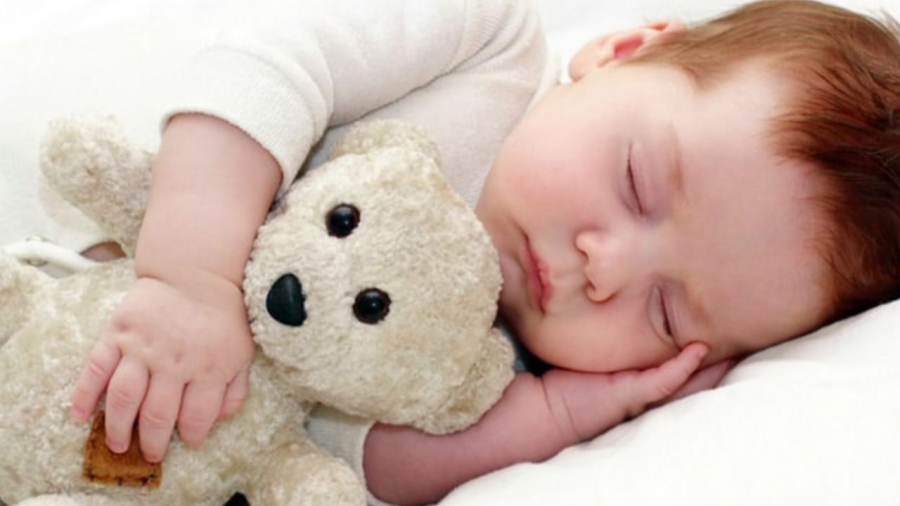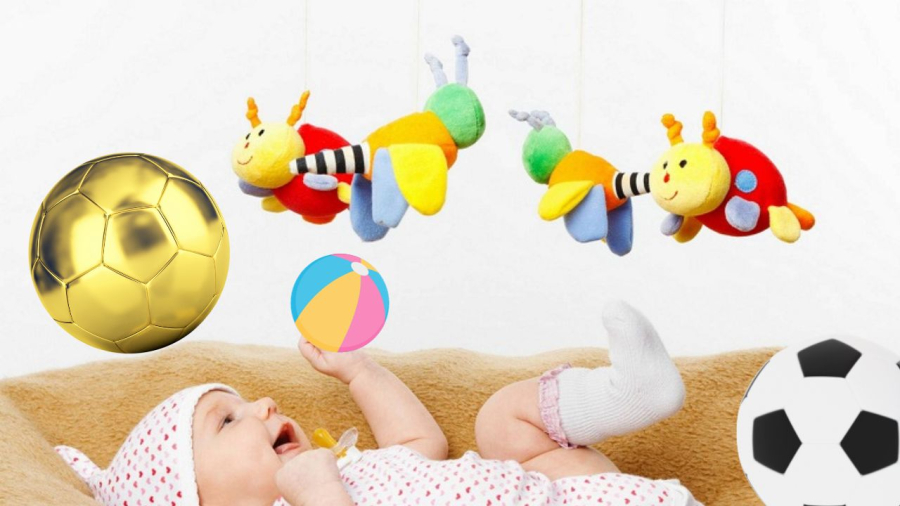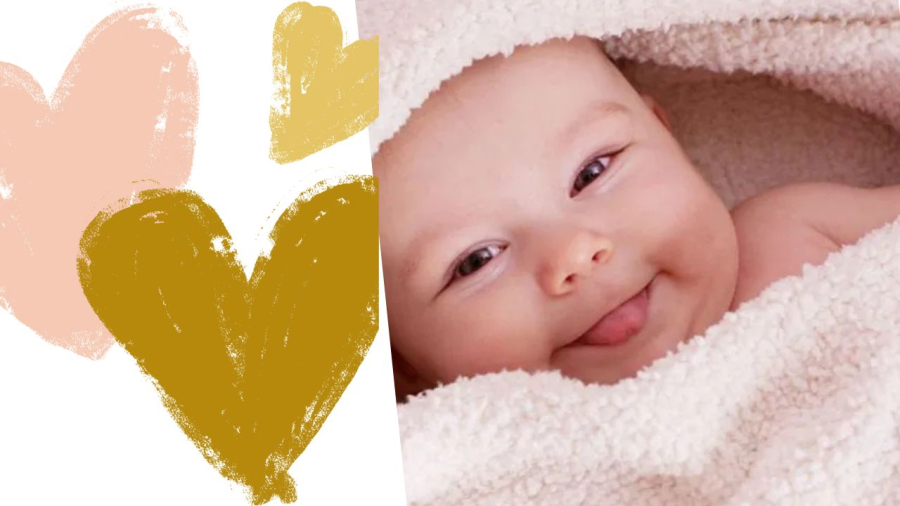Infants spend a significant amount of time sleeping. Many experts believe that the waking behavior of babies is related to their brain development. In the newborn stage, if your baby exhibits the following signs when waking up, it indicates that the child is very intelligent:

Baby plays alone when waking up
Some babies, when they wake up and don’t see their parents around, will play with their fingers and toes. Some babies get bored and will cry to “attract” adults. These are intelligent and adaptable babies who wake up without crying immediately but observe and act independently. These signs indicate that the baby’s IQ is good.
Baby likes to explore everything when waking up
If the baby wakes up without crying and looks around, explores everything and listens attentively. For babies who are able to roll or crawl, they can crawl outside their sleeping area to explore the world. If your baby has this behavior, don’t think that they are mischievous and ask them to stop. Observe to prevent danger and let the baby explore the world to stimulate brain development.

Waking up without crying and smiling while observing
Some babies cry even before opening their eyes. Some babies open their eyes but do not cry and listen to the surroundings. These babies are usually brave and have a strong inner self. If your child exhibits this behavior, you can believe that they will grow up to be brave and independent. Therefore, when you see your baby waking up, don’t rush to them. Observe how they will react. Rushing to them will disrupt the baby’s natural reflex and they will develop according to our direction. Let the baby finish exploring and crying or wait for a while before comforting, changing clothes, or feeding them.
Babies who wake up without crying and often smile can be seen as babies who are not in an anxious state. These babies have a high emotional intelligence. These babies are very optimistic and have a good creative thinking ability.
Waking up and then going back to sleep
Many babies wake up and need their parents to comfort them in order to go back to sleep, but there are some babies who startle awake and then go back to sleep on their own. These babies who can self-soothe are usually emotionally stable and feel safe, adapting well to life. These babies usually have a positive attitude towards the world and accept everything around them. Their world is safe and warm, and they create a strong inner foundation.
Sleep is always a concern for parents. While some wake up and cry continuously until their parents pick them up and soothe them, others wake up silently and feel at ease when they see their mother next to them. They can close their eyes and go back to sleep without being overly alarmed.
Children like this have the ability to sleep on their own, they are usually psychologically stable, and have a high adaptability. They love the world around them, accept everything, and peacefully fall asleep.

Kicking the blanket while sleeping
Parents often worry when their child kicks the blanket, afraid that the child is cold. But babies who kick the blanket are not playing around, usually it’s a reflex to stay warm. Their bodies have a fast metabolic rate and generate heat easily. And they kick the blanket to defend themselves, which shows that they are quick, healthy, and active. So parents don’t have to worry too much about the baby kicking the blanket and don’t think that the baby is playing around while sleeping.
Babies who exhibit these signs are usually intelligent and adorable as they grow up. Of course, if your child doesn’t exhibit these signs, it doesn’t mean they are not intelligent. Create a safe sleeping environment for your child. When babies cry, it shows that they are losing their composure and feeling anxious. This may come from the parents. In terms of a baby’s intelligence, there are many other factors that affect a child’s brain, so you need to observe and pay attention to how to supplement nutrition and teach your child, rather than just looking at these signs to conclude 100% about your child’s intelligence.
































